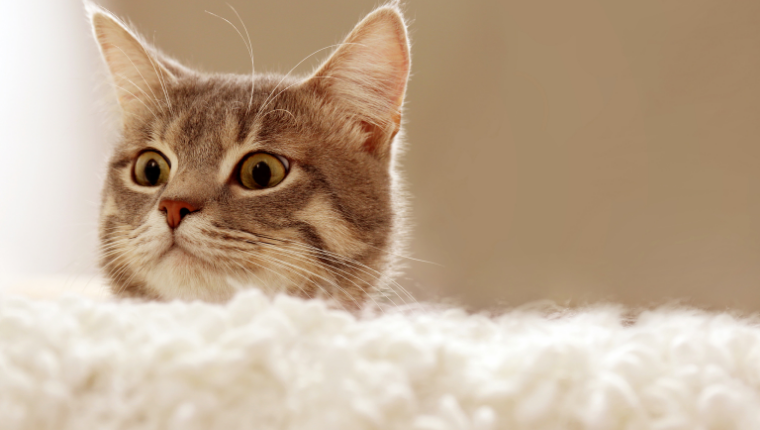National Animal Poison Prevention Week
February 24, 2022 | by BMI Staff
For some families, pets are just as important as human family members. This is why it is so important to keep poisonous materials out of their reach. Unfortunately, there is quite a gray area between what can be considered healthy for people and hazardous to our beloved pets. For that reason, we’ve compiled the following list of hazards, tips, and signs to look out for in case your pet does get their paws on one of these poisons.
Lock Up These Common Household Products
Keeping your cleaning, gardening, and medicinal products out of reach is a good tip for both pet-proofing and child-proofing your home. Keep the following products high off the ground, and store them in a place that pets can’t find their way into.
- Bleach
- Household cleaners
- Fabric softener sheets
- Detergents
- Antifreeze
- Pesticides/herbicides
- Fertilizers
- Most human medications—both over the counter and prescription
- Mouse/rat poisons (or eating a poisoned rodent)
Remember These Unsafe Foods
What may sound like a regular grocery list for us humans is actually yet another list of poisons for our furry friends. Some of the foods that can harm animals may surprise you, so make sure to leave the following foods away from your pets.
- Alcoholic beverages
- Apple seeds
- Apricot pits
- Avocados
- Cherry pits
- Chocolate
- Chives
- Coffee grounds and beans
- Garlic
- Grapes
- Gum (can cause blockages and sugar-free gums may contain the toxic sweetener Xylitol)
- Hops (used in home beer brewing)
- Macadamia nuts
- Moldy foods
- Mushroom plants
- Mustard seeds
- Onions, onion powder and onion flakes
- Peach pits
- Potato leaves and stems (green parts)
- Raisins
- Rhubarb leaves
- Salt
- Tea (because it contains caffeine)
- Tomato leaves and stems (green parts)
- Walnuts
- Xylitol (artificial sweetener that is toxic to pets)
- Yeast dough
Remember These Unsafe Plants
If you have pets, you already know that they will chew on just about anything, including our houseplants! Many common houseplants are harmless to animals (though would still be nice if they weren’t gobbled up). The following, however, are plants that are harmful if ingested by our pets.
- ZZ plant
- Elephant ear
- Corn plant
- Asparagus plant
- Desert rose
- Bird of paradise
- Chinese evergreen
- Snake Plants
- Peace Lily
- Aloe Vera
- Ivy
- Jade
- Philodendron
- Pathos
- Dumb cane
- Sago palm
Watch For the Signs of Poison
We can’t always be around to watch our pets, especially if they venture outdoors and find their way into any of the many poisons that can harm them. For that reason, it is a good idea to recognize the signs that your pet has inhaled, swallowed, or come into contact with hazardous materials.
Inhaled poisons
- Coughing
- Drooling
- Difficulty breathing
- Unconsciousness
- Coma
Swallowed poisons
- Gastrointestinal irritation
- Vomiting
- Diarrhea
- Restlessness
- Staggering
- Disorientation
- Convulsions
- Lethargy
- Loss of appetite
- Twitching
- Dilated pupils
- Ulcers
- Heart palpitations
- Coma
Contact poisons
- Discomfort
- Agitation
- Excessive scratching or licking
- Swellings
- Hives
- Red skin
If your pet is ever experiencing these symptoms, it is best to get them to the vet quickly. Veterinarians are also able to better assist your pet by providing the appropriate remedies if you are able to give them an idea of what caused their symptoms. Differentiating between the categories of symptoms is a great start, but noting what exactly could have caused the reaction will help your vet find the solution quickly and with better accuracy.









